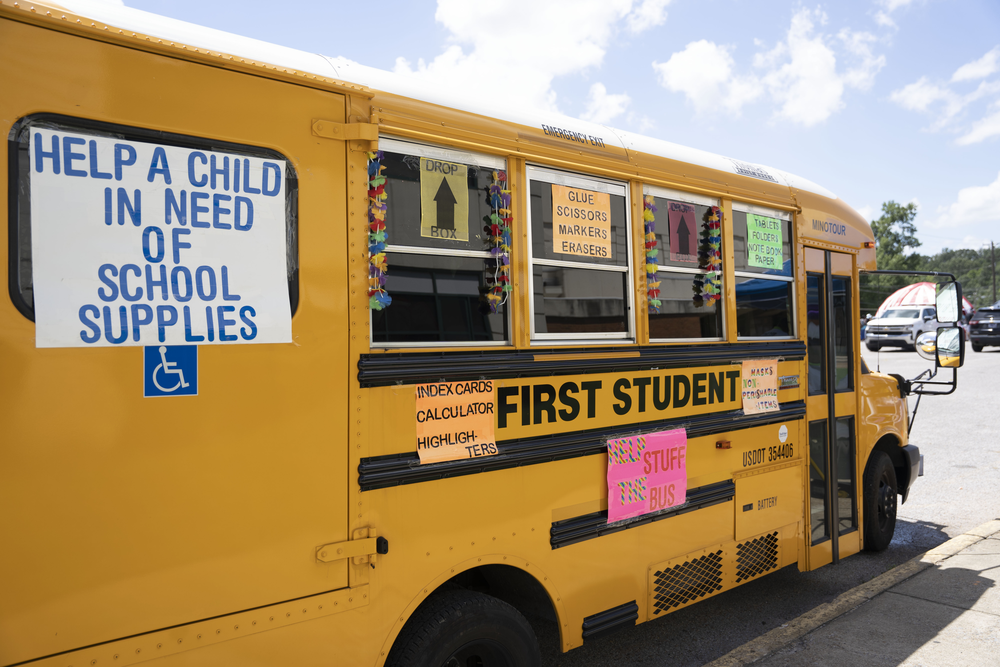7 tips to prepare your child mentally for back-to-school
By Ashley Mills, In-Home Program Expert/Youth Villages
Back-to-school time is around the corner in many areas across the nation. It’s an exciting time, full of hope and anticipation. What’s my new school like? Who’s my teacher? Are all my friends returning this year?
Those questions and others like it, though, can have many children dreading the start of the school year, leading to much anxiety and even depression. The Anxiety and Depression Association of America estimates that between 2% to 5% of school-age children experience anxiety-based school refusal.
So, how can parents help their children/youth get ready from a mental health standpoint for the start of a new school year? Here are seven tips:
- Start your school routine before the first day of school. Don’t wait until the first day of school to get in a school schedule. The best thing you can do is begin a routine before school starts, so your child gets to bed and wakes up at normal times and eats on a schedule. If your children don’t have a routine prior to school starting, waking up at 6 a.m. on the first day of school — and thereafter — is a big jump and changes everything.
- Create a plan of expectations based off previous school year. Look at your child’s successes and challenges (for class, sports, activities) from the previous year and build expectations for the new school year based on that. For example, if homework was a challenge the previous year, address it during the summer and create a plan of accountability for homework that starts on the first day. The school year begins with everyone having a clean slate. But if you go too long before defining those expectations, that slate can get dirty rather quick. Work out those details so, that once school starts, you’re not behind.
- Make sure your children have the supplies they need for school. It may not seem like a huge factor, but having all supplies on the first day of school can provide an incredible confidence boost for your children. Having a new backpack and supplies creates a feeling that ‘I am valuable.’ On the contrary, a child who doesn’t start school with the necessary supplies has feelings of shame or that they’re different. Isolation is created on the first day and that can set a negative tone for the entire school year.
- Familiarize your child with where they are going to school. Don’t allow the first day of school to be the first time your child sees the school. Ease some anxiety by taking your child to see the school building and facilities before the first day, especially for first timers in kindergarten or pre-kindergarten. If the school has an open house or orientation, take advantage of that. If there is no open house, take the initiative and explore the campus on your own. At least walk around the outside of the building, see the playground, and show your child that school is fun and more than sitting in a classroom. Anything you can do to create familiarity, do it.
- Remind your child of what they learned the previous year. While school “veterans” are familiar with their school, they may have anxiety from thinking they haven’t retained what they learned the previous year. Do a short review from the previous year with a couple of math questions, a few spelling words or a couple of science lessons. Go over them and allow them to see what they remember. Your child may also wonder if they will connect with their school friends from the previous year. Talk about the friends they have missed over the summer and why they missed them. Try to find the positives to get them excited about starting school.
- For parents, create dialogue with the teacher from day one. Contact your child’s teacher(s) and find out how to stay updated on your child’s progress. Create the line of communication early so you can get a picture of what’s happening from week one onward. This allows you to see if your child is struggling before it gets too far. A quick indicator of academic struggles oftentimes can shine the light on other interpersonal struggles your child is having. For a lot of kids, if they are feeling socially isolated or their anxiety level has peaked, it’s going to impact their grades.
- Stay engaged with your child beyond the first day. After the first day, keep asking about their time at school and open the lines of communication with your child. You need to be excited about your child’s school day. Is there a particular friend you played with? Is there an activity you enjoyed? Favorite time of the day? What can we look forward to tomorrow? If your child is closed off right after school, give them time to not think about school for a while. Try again later, maybe at dinner, to talk about their school day. Be intentional and create time to talk.
If your child and family require additional assistance for coping with school challenges, please contact the school’s or district’s counseling/resources department or, if needed, reach out to the state of Tennessee’s 24/7 Crisis Line via phone (855-274-7471) or text (TN to 741741).
Ashley Mills is a Youth Villages In-Home Program Expert and has been with the national nonprofit for 21 years. Founded in 1986, Youth Villages is a national leader in children’s mental and behavioral health committed to building strong families, delivering effective services, and significantly improving outcomes for children, families and young people involved in child welfare and juvenile justice systems across the country. Learn more at youthvillages.org.

